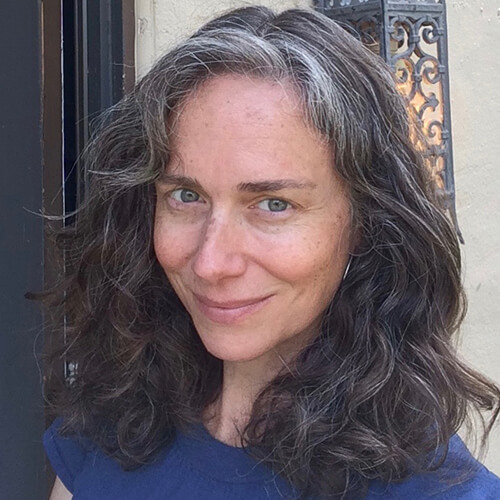In 2017, we wrote about how developing countries are helping shape the future of medicine, and even before that African innovations were influencing how we do business here in the US. For instance, US mobile banking owes a lot to early fintech breakthroughs with M-Pesa in Kenya and Celtel in the DRC. The rapid spread of the coronavirus COVID-19 has only underscored the agility and ingenuity of many African entrepreneurs and institutions in response to the crisis.
One area where African entrepreneurs excel: rapid digital innovations. This is in part because mobile platforms are ubiquitous; public-private partnerships are common; and there is experience combatting highly-infectious diseases. These are advantages for launching rapid, low-cost R&D strategies unencumbered by the regulatory and market dynamics faced by healthcare and Big Pharma in North America and Europe.
Since the West African Ebola outbreak from 2013-2016, Africa’s innovators have developed the ability to rapidly scale up testing capacities, coordinate activities at the continental level, and conduct large-scale surveillance and contact tracing—all needed to combat COVID-19.
“With this crisis, hopefully we will see more infrastructure and investments, which will lead to additional innovations,” says Shashi Buluswar, CEO of the Institute for Transformative Technologies, which supports dozens of projects in Africa and is partnering with Future Factory and the Global Development Incubator to design and promote high-impact technology innovations for primary healthcare systems in low-income countries.
Here are a half dozen examples:
1. $1 COVID-19 Antigen and Antibody Tests: Senegal

In March, researchers at DiaTropix, an infectious disease testing facility run by the Institut Pasteur de Dakar in Senegal, began validation trials on COVID-19 antigen and antibody tests that can be done at home and cost only $1. A tiny sample of blood is used and then a line on a strip shows the results. The goal is to have a test that can detect both current and previous infections in less than 10 minutes. There will be lab, clinic, and home antibody tests and antigen tests (to detect a current infection).
By comparison, a COVID-19 test in the US can take days to process and cost hundreds of dollars.
The Institute Pasteur, which is working in partnership with the U.K.-based diagnostic and biotech companies BioSURE and Mologic, will manufacture the tests for the African continent. The lab tests could be distributed throughout Africa this summer, depending on the results of current studies.
The tests, including the BioSURE COVID-19 Antibody Self-Test, will also be made available in high-income countries, albeit at slightly higher costs than in Senegal. The UK government recently began a study of the Antibody Self-Tests.
2. Pool Testing: Ghana
Ghana has the second-highest rate of testing for COVID-19 in Africa (after South Africa). The key was a technique used by researchers at the Noguchi Memorial Institute of Medical Research known as “pool testing.” Pool testing entails testing multiple blood samples together, and only conducting individual tests if the pool test reveals a positive result. This allows health officials to test more people at a faster pace and lower cost. Researchers from Saarland University in Germany recently published an article in The Lancet showing the effectiveness of this technique in ramping up testing with “sufficient diagnostic accuracy.” The World Health Organization is now studying this technique.
3. Triage Tool: Nigeria

The COVID-19 Triage Tool, developed by Wellvis Health, a Nigerian health tech startup, helps users self-assess their COVID risk category. By answering epidemiologically relevant questions about their symptoms and exposure history, users are placed into low, medium, and high-risk categories. Then based on their category, users will be directed to remote medical advice or a nearby healthcare facility. The interface is being used by the Nigeria Center for Disease Control. In its first two weeks up, the Triage Tool was used by more than 380,000 people.
4. WhatsApp Interactive Chatbot: South Africa

In an effort to educate people quickly about COVID-19, the South African government created an interactive WhatsApp chatbot, HealthAlert. Praekelt.org, a Johannesburg-based non-profit focused on mobile technology solutions to social problems, partnered with the South African National Department of Health to launch COVID-19 HealthConnect, a set of interconnected services, including HealthAlert.
Launched in March, the chatbot can answer common questions about the coronavirus, including symptoms and treatment. It has reached over 6.2 million users in five languages.
HealthConnect also includes COVID-19 HealthCheck, software that assesses a user’s risk to help early detection, mapping, and management of cases, and HealthWorkerAlert, which provides information and psychosocial support for frontline healthcare workers.
Other countries and organizations now using HealthConnect services include the World Health Organization, Ethiopia, Madagascar, Mozambique, Uganda, Australia, and New Zealand. Praekelt.org estimates that HealthConnect has the potential to reach two billion people globally.
5. Health Scan Tablet: Guinea
Health Scan is a tablet that can detect body temperature, heart rate, and oxygen levels using a thermal camera and sensors. This allows medical professionals to determine if someone has COVID-19 in a matter of minutes. “We can target the hottest part of the body and get a much more reliable temperature than from a Thermoflash forehead reading, as we saw in China during the first days of the epidemic [when those readings were shown to be unreliable],” said Mountaga Keita, CEO of Tulip Industries, in an interview on Radio Télévision Guinéenne.
Tulip was able to put Health Scan on the market on March 17 by adapting a tablet it had originally designed for the armed forces to allow military doctors to do medical exams in remote locations.


